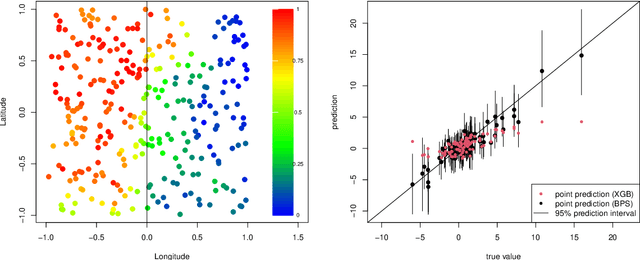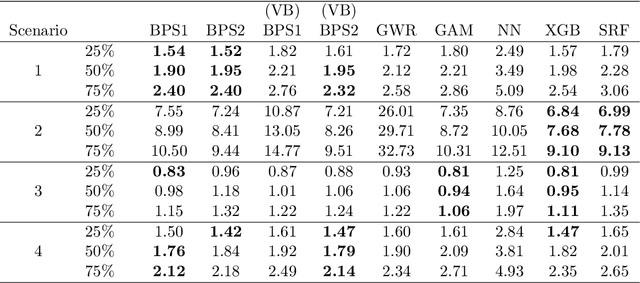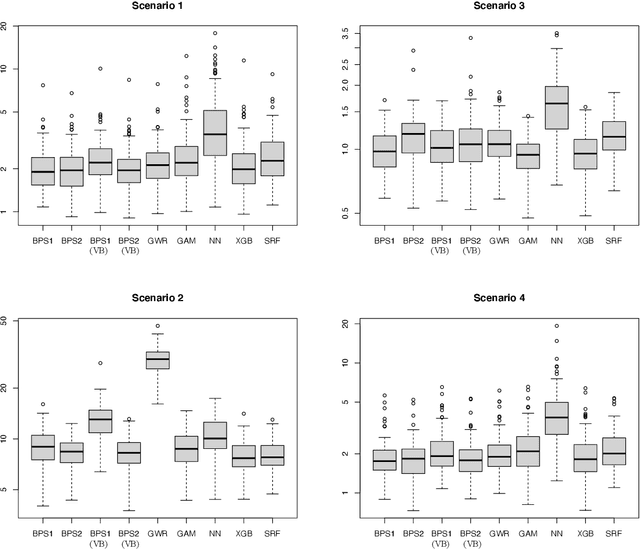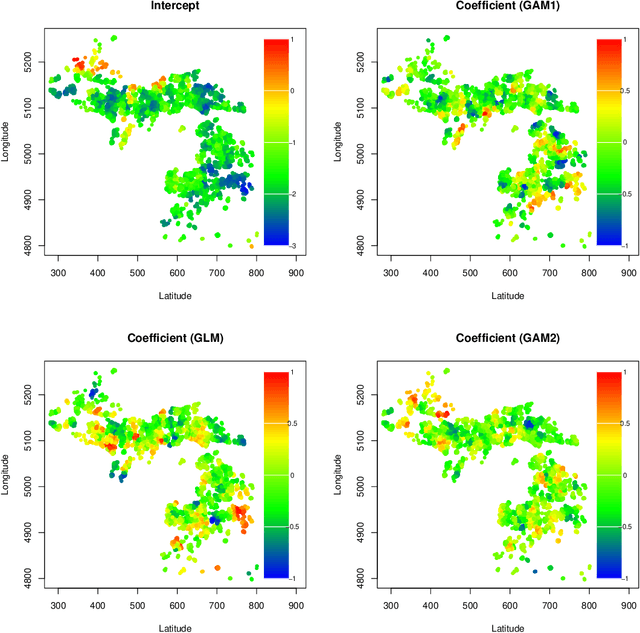Kosaku Takanashi
Spatially-Varying Bayesian Predictive Synthesis for Flexible and Interpretable Spatial Prediction
Mar 22, 2022



Abstract:Spatial data are characterized by their spatial dependence, which is often complex, non-linear, and difficult to capture with a single model. Significant levels of model uncertainty -- arising from these characteristics -- cannot be resolved by model selection or simple ensemble methods, as performances are not homogeneous. We address this issue by proposing a novel methodology that captures spatially-varying model uncertainty, which we call spatial Bayesian predictive synthesis. Our proposal is defined by specifying a latent factor spatially-varying coefficient model as the synthesis function, which enables model coefficients to vary over the region to achieve flexible spatial model ensembling. Two MCMC strategies are implemented for full uncertainty quantification, as well as a variational inference strategy for fast point inference. We also extend the estimations strategy for general responses. A finite sample theoretical guarantee is given for the predictive performance of our methodology, showing that the predictions are exact minimax. Through simulation examples and two real data applications, we demonstrate that our proposed spatial Bayesian predictive synthesis outperforms standard spatial models and advanced machine learning methods, in terms of predictive accuracy, while maintaining interpretability of the prediction mechanism.
Predictive properties of forecast combination, ensemble methods, and Bayesian predictive synthesis
Dec 02, 2019



Abstract:This paper studies the theoretical predictive properties of classes of forecast combination methods. A novel strategy based on continuous time stochastic processes is proposed and developed, where the combined predictive error processes are expressed as stochastic differential equations, evaluated using Ito's lemma. We identify a class of forecast combination methods, which we categorize as non-linear synthesis, and find that it entails an extra term in the predictive error process that "corrects" the bias from misspecification and dependence amongst forecasts, effectively improving forecasts. We show that a subclass of the recently developed framework of Bayesian predictive synthesis fits within this class. Theoretical properties are examined and we show that non-linear synthesis improves the expected squared forecast error over any and all linear combination, averaging, and ensemble of forecasts, under mild conditions that are met in most real applications. We discuss the conditions for which non-linear synthesis outperforms linear combinations, and its implications for developing further strategies. A finite sample simulation study is presented to illustrate our results.
 Add to Chrome
Add to Chrome Add to Firefox
Add to Firefox Add to Edge
Add to Edge